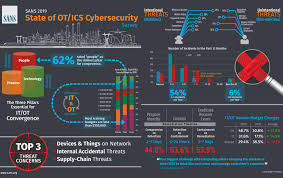Deciphering Privileged Access Management Pricing: A Comprehensive Guide
Understanding Privileged Access Management Pricing
Privileged Access Management (PAM) is a crucial component of any organisation’s cybersecurity strategy. It helps prevent unauthorised access to sensitive data and systems by managing and monitoring privileged accounts effectively. When considering implementing a PAM solution, one of the key factors to evaluate is the pricing structure.
Factors Influencing PAM Pricing
Several factors can influence the pricing of a Privileged Access Management solution:
- Number of Users: Typically, PAM pricing is based on the number of users who require privileged access. The more users you have, the higher the cost may be.
- Features and Functionality: Different PAM solutions offer various features and levels of functionality. More advanced features may come at a higher price point.
- Deployment Model: Whether you choose an on-premises, cloud-based, or hybrid deployment model can impact pricing. Cloud-based solutions often involve subscription-based pricing.
- Scalability: Consider how scalable the PAM solution is to accommodate your organisation’s growth. Scalability may affect pricing structures.
- Integration Capabilities: If you require integration with other security tools or systems, this may affect pricing as well.
Tips for Evaluating PAM Pricing
When evaluating Privileged Access Management pricing, consider the following tips:
- Determine Your Requirements: Clearly define your organisation’s needs and priorities regarding privileged access management to select a solution that aligns with your goals.
- Compare Multiple Providers: Research and compare pricing from multiple PAM providers to ensure you are getting the best value for your investment.
- Avoid Hidden Costs: Be aware of any hidden costs such as implementation fees, training costs, or additional modules that may incur extra charges.
- Negotiate Terms: Don’t hesitate to negotiate terms with vendors to find a pricing structure that suits your budget and requirements.
In Conclusion
Pricing is an essential consideration when selecting a Privileged Access Management solution. By understanding the factors that influence PAM pricing and following best practices for evaluating costs, you can make an informed decision that meets your organisation’s security needs while staying within budget constraints.
9 Essential Tips for Navigating Privileged Access Management Pricing
- Consider the number of privileged users that need access
- Evaluate the features and capabilities offered by different vendors
- Look for transparent pricing models to avoid hidden costs
- Negotiate volume discounts if you have a large number of users
- Compare subscription-based pricing with perpetual licensing options
- Factor in implementation and training costs in your budget planning
- Consider scalability requirements to ensure the solution can grow with your business
- Check for additional fees for support services or maintenance updates
- Explore bundling options with other security solutions for cost savings
Consider the number of privileged users that need access
When assessing Privileged Access Management pricing, it is crucial to consider the number of privileged users requiring access. The more users who need elevated permissions within the system, the higher the potential cost may be. Understanding the specific requirements and user roles within your organisation can help determine an appropriate pricing structure that aligns with your security needs while managing expenses effectively.
Evaluate the features and capabilities offered by different vendors
When considering Privileged Access Management pricing, it is crucial to evaluate the features and capabilities offered by different vendors. Each vendor may provide a unique set of functionalities that cater to specific security requirements and operational needs. By comparing the features in detail, organisations can determine which PAM solution aligns best with their security objectives and offers the most value for their investment. Understanding the range of capabilities available can help in selecting a vendor that not only meets current requirements but also supports future growth and scalability in privileged access management practices.
Look for transparent pricing models to avoid hidden costs
When exploring Privileged Access Management pricing, it is advisable to seek out transparent pricing models to steer clear of hidden costs. Transparent pricing ensures that all charges and fees are clearly outlined upfront, allowing organisations to budget effectively and avoid unexpected expenses. By opting for a PAM solution with a transparent pricing structure, businesses can make informed decisions regarding their cybersecurity investments and mitigate the risk of financial surprises down the line.
Negotiate volume discounts if you have a large number of users
When considering Privileged Access Management pricing, it is advisable to negotiate volume discounts if your organisation has a large number of users requiring privileged access. By leveraging your user base, you may be able to secure more favourable pricing terms with PAM solution providers. Negotiating volume discounts can help reduce overall costs and maximise the value of the investment in securing privileged accounts within your organisation’s cybersecurity framework.
Compare subscription-based pricing with perpetual licensing options
When evaluating privileged access management pricing, it is essential to compare subscription-based pricing with perpetual licensing options. Subscription-based pricing typically involves paying a recurring fee for the duration of the service, offering flexibility and scalability. On the other hand, perpetual licensing requires a one-time upfront payment for indefinite use of the software, which may be more cost-effective in the long run. By comparing these two pricing models, organisations can determine which option aligns best with their budget and operational requirements for effective privileged access management.
Factor in implementation and training costs in your budget planning
When considering the pricing of a Privileged Access Management solution, it is crucial to factor in implementation and training costs in your budget planning. Implementation costs may include setup, configuration, and integration with existing systems, while training costs are essential for ensuring that your team can effectively utilise the PAM solution. By accounting for these additional expenses upfront, you can better assess the total cost of ownership and make informed decisions that align with your organisation’s cybersecurity goals and financial resources.
Consider scalability requirements to ensure the solution can grow with your business
When evaluating Privileged Access Management pricing, it is crucial to consider scalability requirements to ensure that the chosen solution can grow in tandem with your business. Scalability plays a vital role in accommodating the evolving needs of an organisation, especially as it expands and the number of users and privileged accounts increases. By selecting a PAM solution that is scalable, you can future-proof your cybersecurity strategy and avoid the need for costly migrations or upgrades down the line. Investing in a PAM solution that can seamlessly grow with your business ensures long-term cost-effectiveness and operational efficiency in managing privileged access.
Check for additional fees for support services or maintenance updates
When assessing Privileged Access Management pricing, it is crucial to scrutinise any additional fees for support services or maintenance updates. Some providers may charge extra for ongoing support, training, or regular software updates, which can significantly impact the total cost of ownership. By being aware of these potential hidden costs upfront, organisations can make informed decisions and budget effectively for the long-term maintenance and upkeep of their PAM solution.
Explore bundling options with other security solutions for cost savings
Exploring bundling options with other security solutions can be a strategic approach to achieve cost savings when investing in Privileged Access Management (PAM). By combining PAM with complementary security tools, organisations may benefit from discounted pricing or bundled packages that offer a comprehensive security solution at a reduced cost. This approach not only enhances the overall cybersecurity posture by integrating multiple layers of protection but also optimises budget allocation by leveraging cost-effective bundled offerings.




